The terms are completely interchangeable. While some people try to insist that one is 'safety', or '0v', or 'common', or 'return', or 'to actual soil', they are not definitive terms. If you find any old books 'defining' such terms, then they are for use only within that discipline. For instance a railway maintenance worker operating to the maintenance handbook issue 17 may attach very specific meanings to earth and ground, but it's not any definition shared by the rest of the technical community.
If the general term is not sufficient, then you have to specify what aspect(s) of 'ground' is actually meant. The one you have pictured may have 'able to withstand 6000A for the time it takes to blow a 5A rated fuse' and 'connects first, breaks last', as two of its 'safety ground' defining features.
